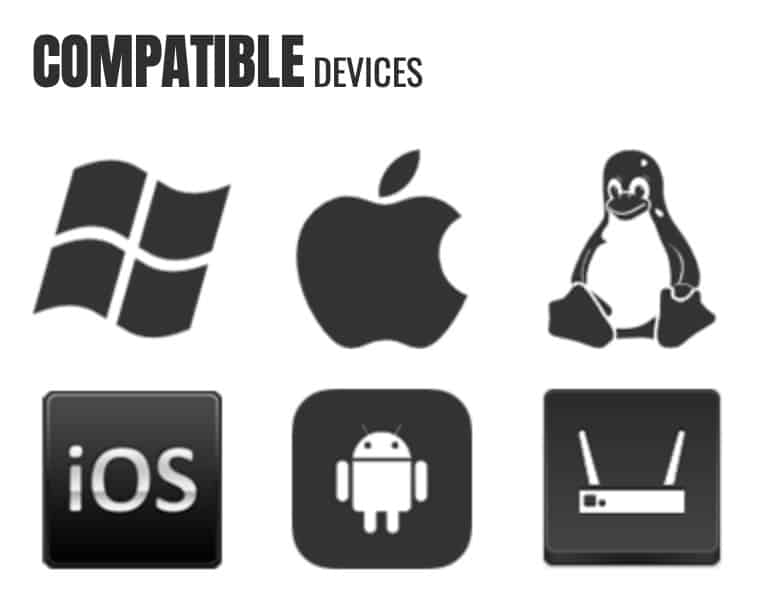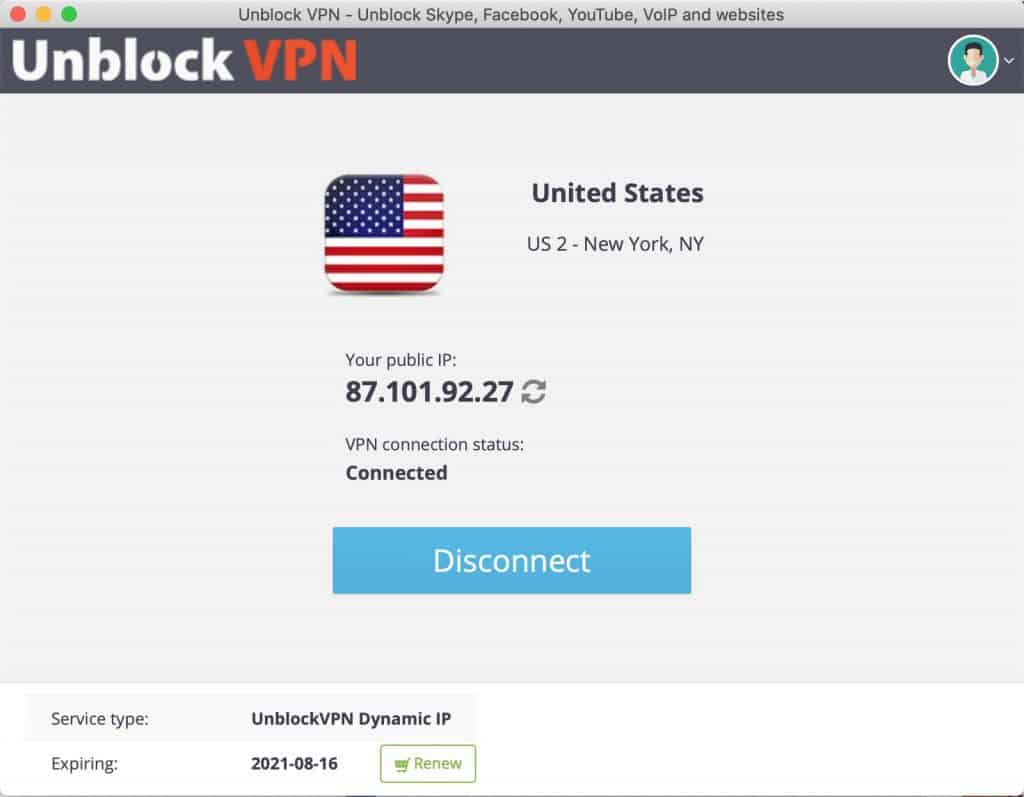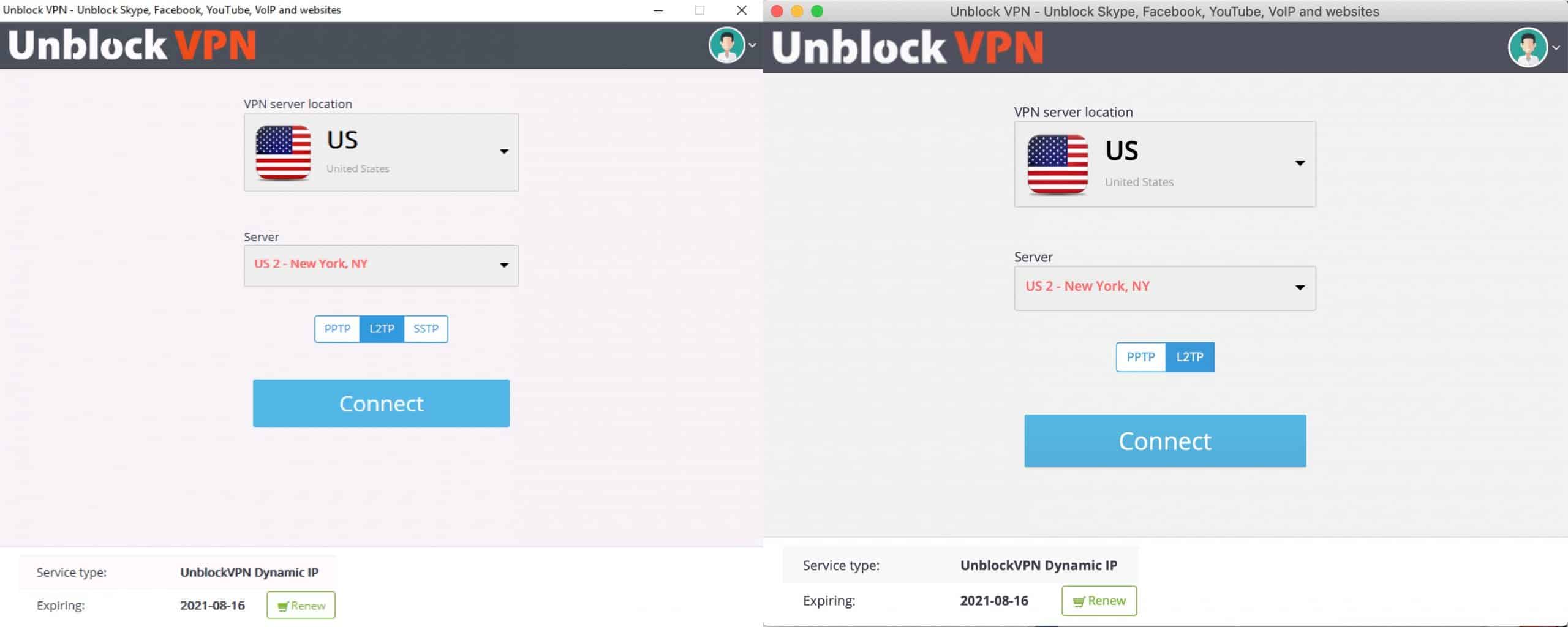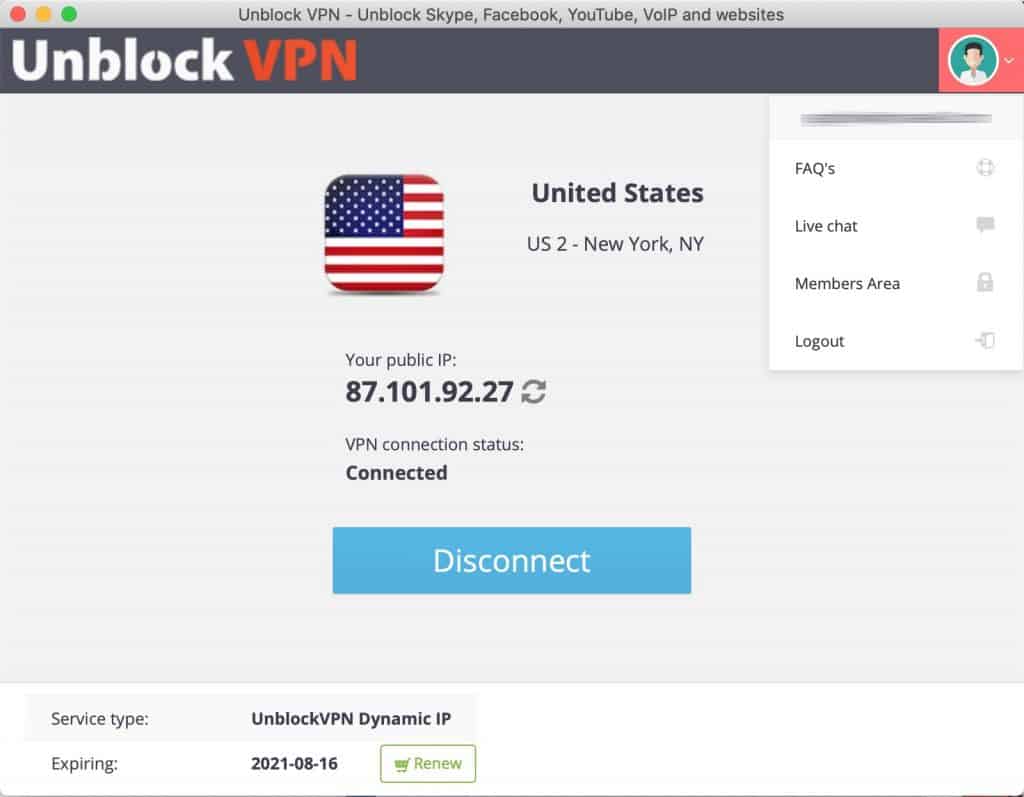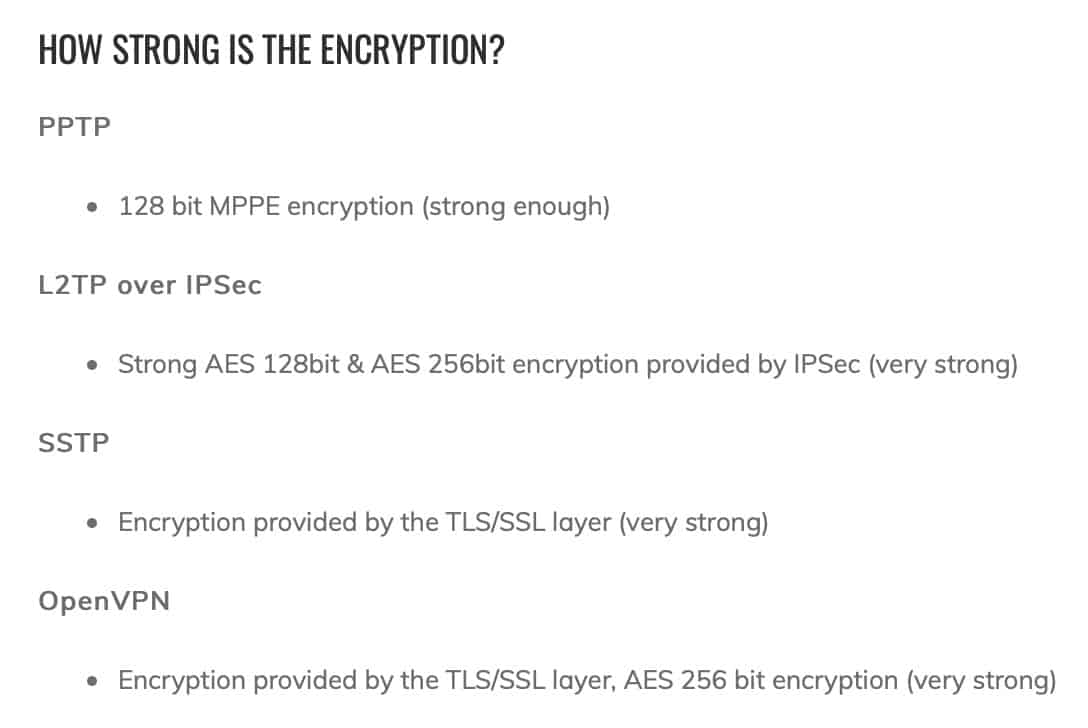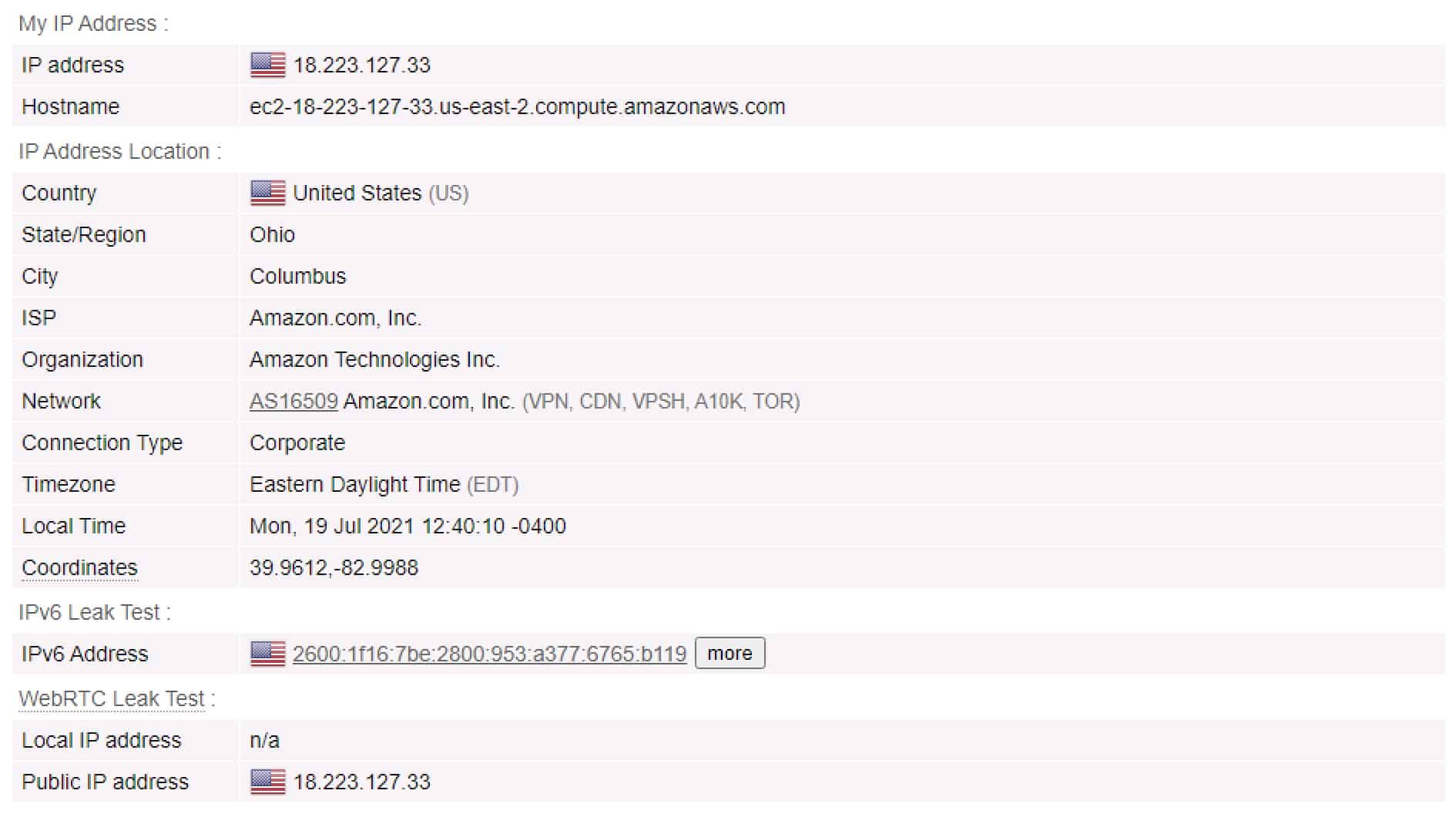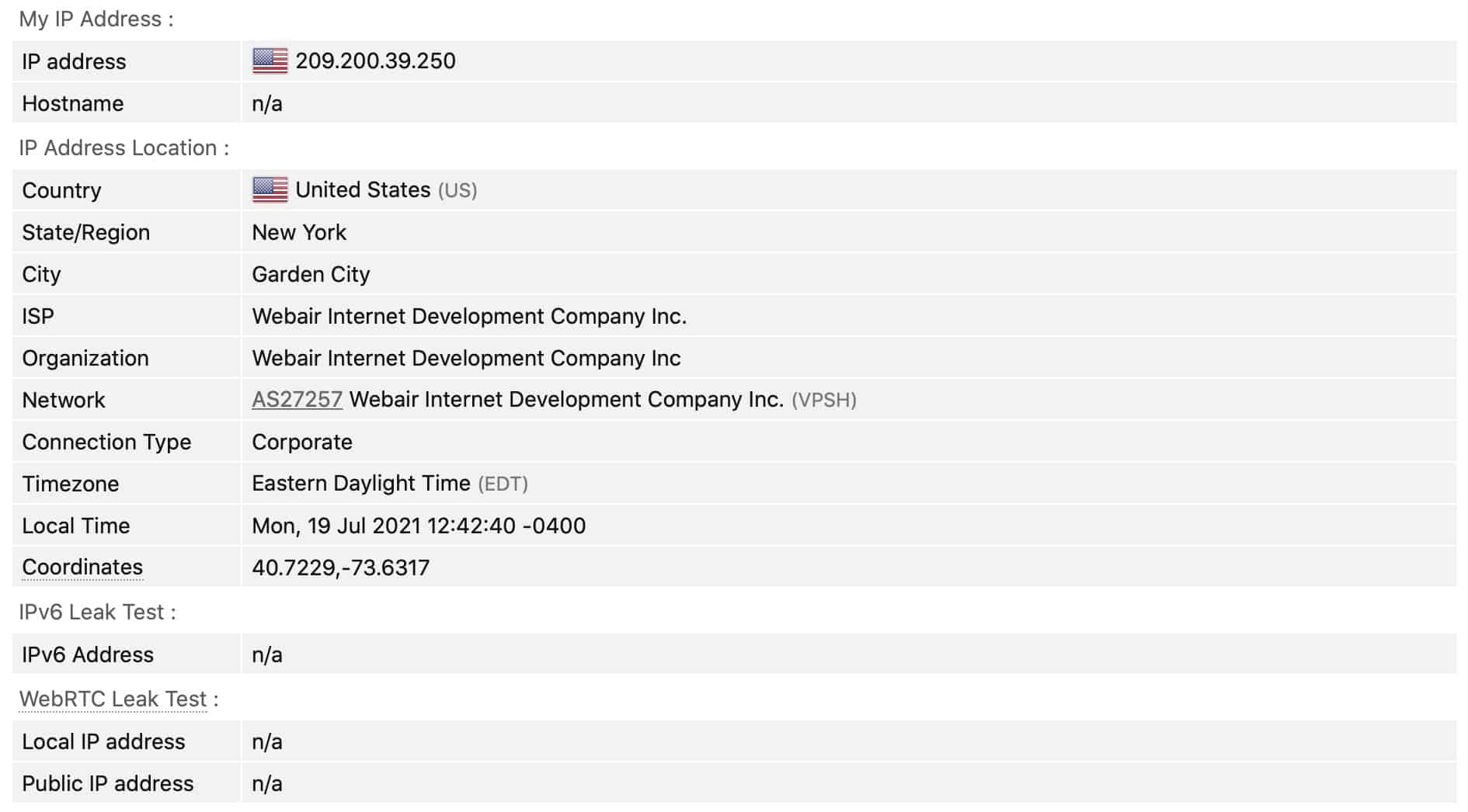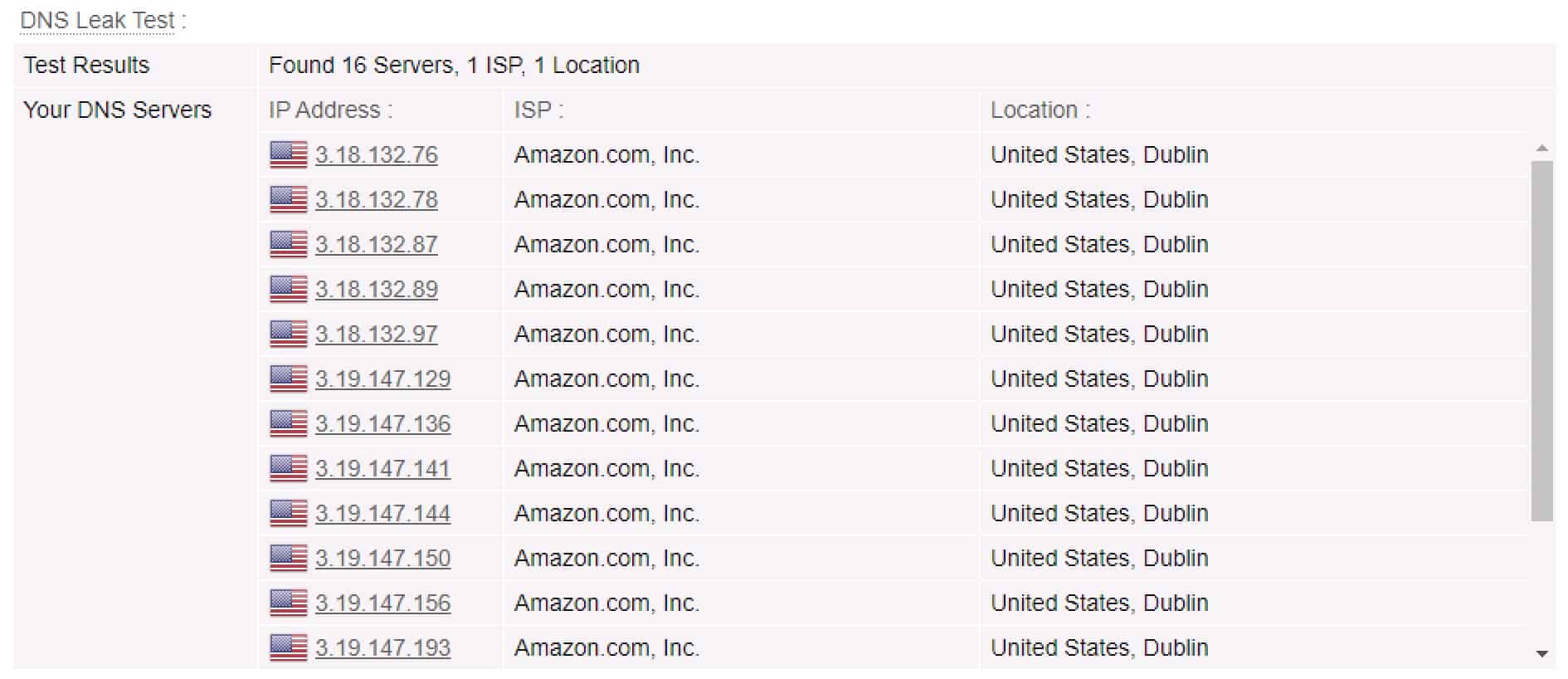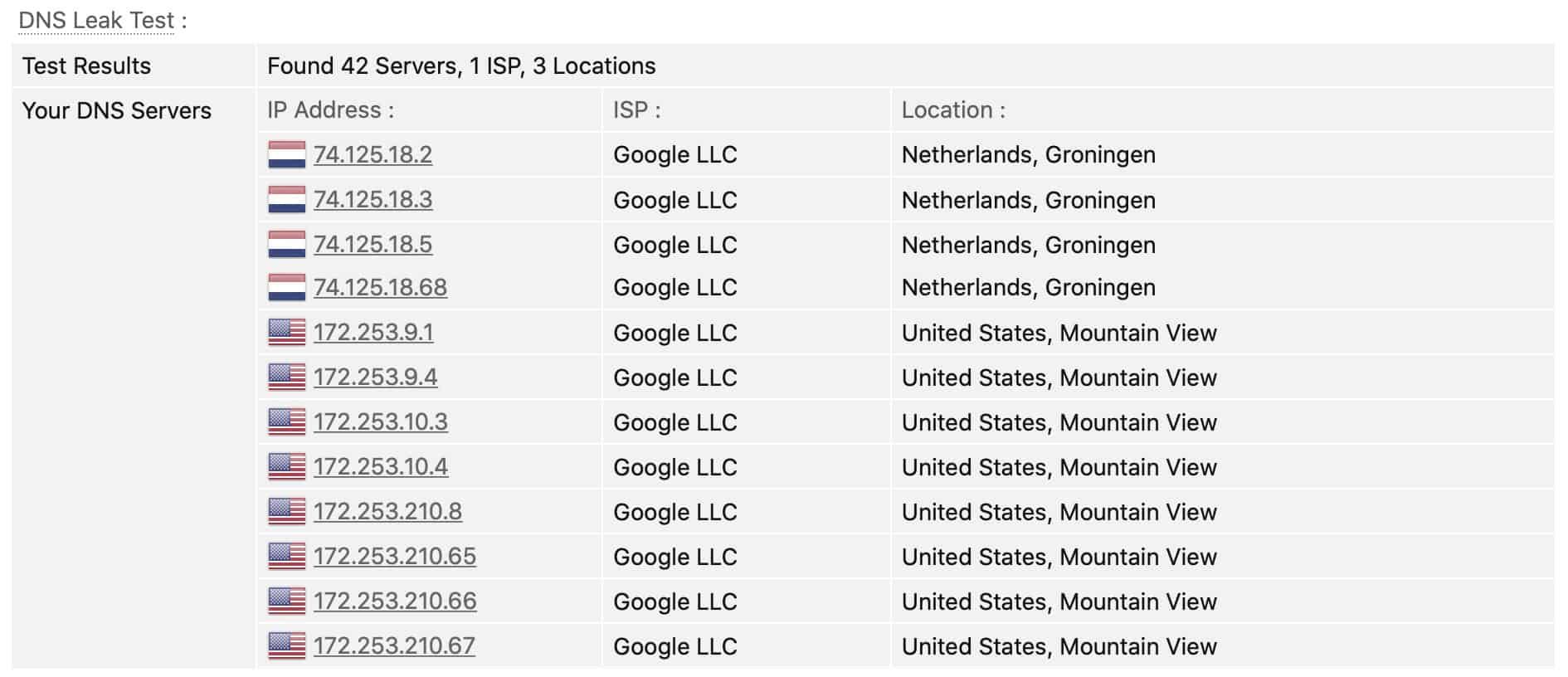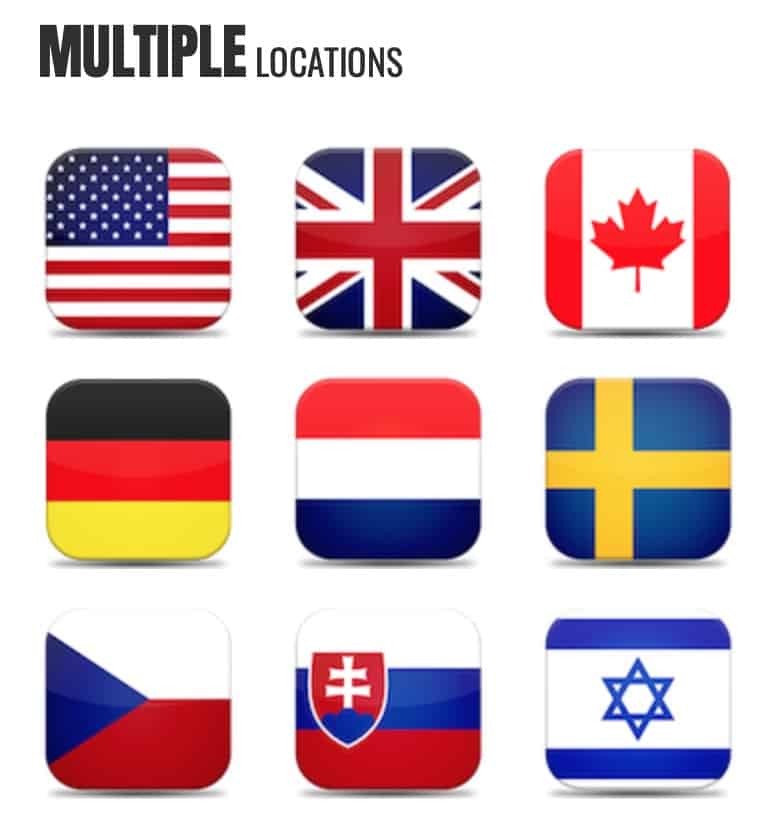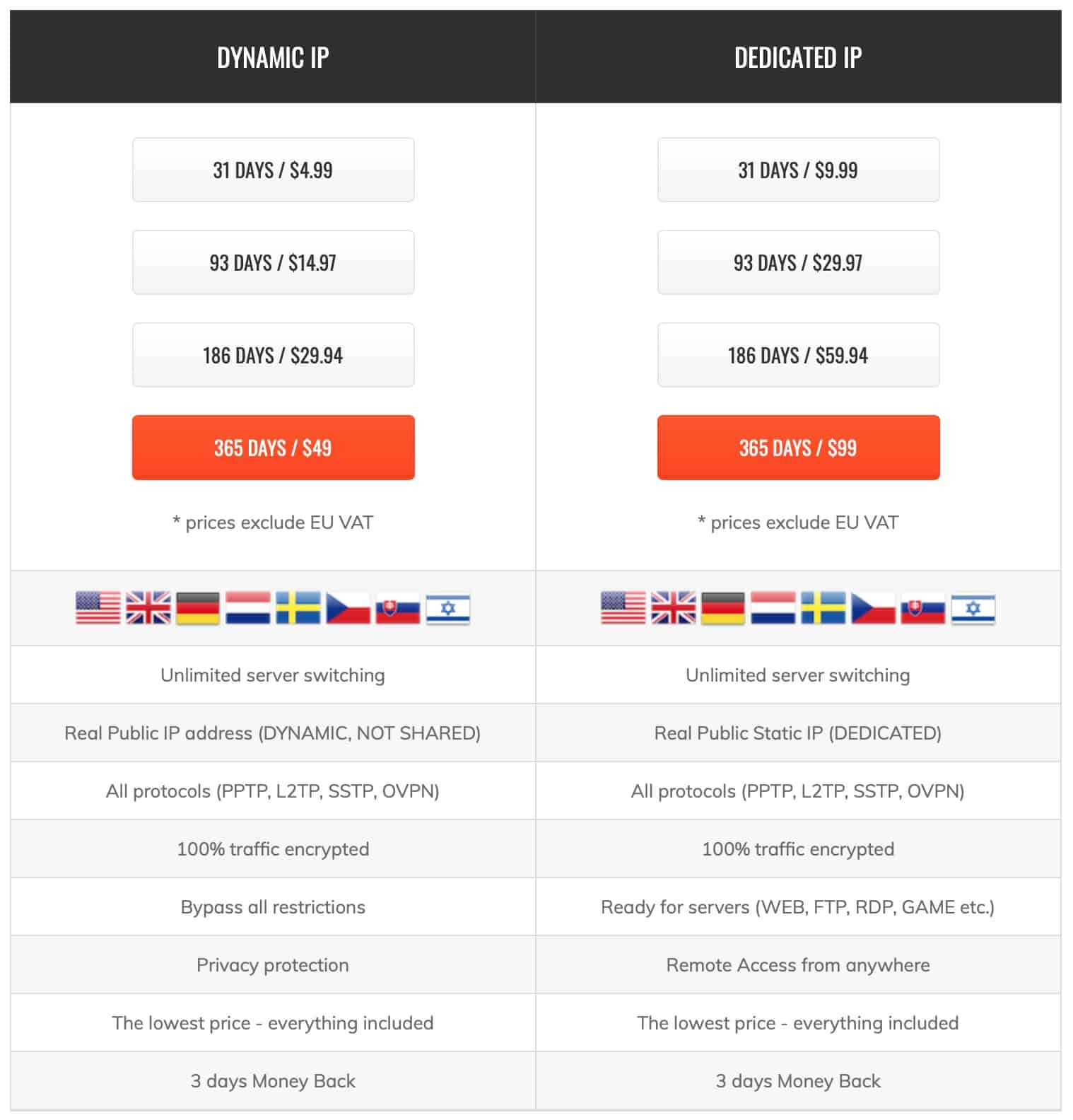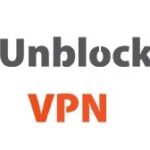
This Unblock VPN review answers the following questions:
- How are Unblock VPN’s speeds?
- Is Unblock VPN private and secure?
- What VPN protocols does it support?
- What are Unblock VPN’s logging practices like?
- Does the service work in China or other restrictive jurisdictions?
All of those questions and more are answered in this review. I recommend reading the whole thing if you want all of the details, but if you’re a bit stretched for time, you can read a summary of my thoughts below.
Unblock VPN summary
Unblock VPN is based in the Czech Republic and has been in the commercial VPN space since 2009. It clearly focuses on streaming and does an excellent job at that. However, it’s still a VPN and, as such, should also provide security and privacy. That’s where it falls short.
Unblock VPN does support OpenVPN, which is very secure, but all of the other protocols it supports are either weak or proprietary and closed-source. That would be PPTP, L2TP, and SSTP (SSTP is closed-source and owned by Microsoft). It also provides dedicated IP addresses rather than shared IP addresses. While purchasing a dedicated IP may seem fancier than a shared one, it’s not good for your privacy. With a shared IP address, all users’ traffic is mixed together, making correlation much more difficult. Not so with a dedicated IP address.
And then there are the annoyances. Unblock VPN only provides a macOS and a Windows client. For mobile and Linux, it will have to be manual configuration and, for OpenVPN on mobile, a third-party app. Add to that that its privacy policy is somewhat opaque, and you’re left with a subpar VPN service. Unblock VPN is not recommended—even if streaming is your priority.
Unblock VPN key data
| OVERALL RANK: #0 of 62 | |
|---|---|
| Speed | Score: 7 |
| Average Speed*: | 50.7 Mbps |
| Video Streaming Support: | 4K UHD |
| Streaming | Score: 8 |
| Netflix: | Yes |
| Other Streaming Services: | Hulu, BBC iPlayer, Disney+, Amazon Prime Video |
| Security | Score: 4 |
| Encryption Type: | 128/256-bit AES |
| Kill Switch: | No |
| Log Policy: | Collects user data |
| Protocols: | OpenVPN, L2TP, PPTP, SSTP |
| Value for Money | Score: 6 |
| Lowest Monthly Cost: | $4.99 |
| Money Back Guarantee: | 3-day money-back guarantee |
| Website | https://unblockvpn.com |
How does Unblock VPN compare to other popular VPNs?
Here’s how Unblock VPN compares to ExpressVPN and Surfshark:
| No value | Unblock VPN | ExpressVPN | Surfshark |
| Website | unblockvpn.com | ExpressVPN.com | Surfshark.com | Average Speed (Mbps) | 51 Mbps | 300 Mbps | 100+ Mbps | OpenVPN data encryption | 128/256-bit AES | 256-bit AES | 256-bit AES | Kill Switch | Desktop only | Allows Torrenting | Connection logs | Some aggregated data | Effectively none | Unblocks Netflix US | Unblocks Prime Video | Unblocks Hulu | Unblocks BBC iPlayer | Lowest monthly cost | $4.99 per month | $4.99 | $1.99 | Money back guarantee | 3 day | 30 days | 30 days | Overall rating | 6 | 9.3 | 9.6 |
|---|---|---|---|
| Best deal (per month) | $4.99/mo for the 12 month plan | $4.99 SAVE: 61% + 4 months free on 2 year plans | $1.99 86% OFF + 3 months free |
Unblock VPN pros and cons
Pros:
- Works with most streaming sites
- Provides good speeds
- Supports OpenVPN
- 3-day free trial
Cons:
- Collects user data
- Apps do not include any options
- Free trial disconnects the VPN every five minutes, making it unusable
- Supports weak and closed-source VPN protocols
- Provides dedicated IP addresses rather than shared IP addresses
- Only offers native apps for macOS and Windows
- Money-back guarantee is only three days
- Limited to three simultaneous connections
Speed: How fast is Unblock VPN
Regardless of the type of user a VPN provider is catering to, speed is always important. And I can report that Unblock VPN’s speeds are pretty decent.
I ran the tests using the OpenVPN protocol over UDP and used servers located in North America, Europe, and Israel. Normally, I would have tested an Asian server but there aren’t any in Unblock VPN’s network. Nonetheless, in my tests, Unblock VPN performed very well. You shouldn’t feel a speed dip if your connection is above 100 Mbps, and there’s a good chance you wouldn’t feel it even if you had lower bandwidth. Speeds are not an issue with Unblock VPN. Here are the averages for each region:
- North America (where I’m located): 55.3 Mbps
- Israel: 54.6 Mbps
- Europe: 42.3 Mbps
The global average, across all times and locations, works out to 50.7 Mbps.
I was also able to test Unblock VPN with online gaming. And, as expected, the results were equally as good. I did take care to connect to a VPN server close to my actual location to get lower ping times. Everything was smooth, just as if I was using my ISP connection. No disconnects, lagging, or freeze-ups. Good gaming experience.
See also: Fastest VPNs
Apps & devices
Unblock VPN supports the following operating systems:
However, it only supplies native clients for macOS and Windows, which is a big nuisance. That means that for Linux, you’ll need to manually create your connection. And if you want to use OpenVPN—recommended as Unblock VPN does not support IKEv2—you’ll not only need to configure your connection manually, but you’ll also need to download a third-party client app. None of Unblock VPN’s native apps support OpenVPN. That’s definitely not ideal.
The app itself is the simplest VPN app I’ve ever seen because… there are absolutely no settings you can configure in the app, aside from your VPN protocol and the server you want to connect to.
Simplicity is usually a good thing. But let’s not go nuts here. Zero options?
Typically, there are quite a few things to discuss when assessing a VPN provider’s app. But in this case, all you can do is launch the client, log in, select your protocol (the Windows client supports PPTP, L2TP, and SSTP, while the macOS app supports PPTP and L2TP), choose your server, connect, and logout.
There appears to be a Settings section in the app, but it’s nothing more than a few links to its website and a logout button. Unblock VPN should provide a more comprehensive app to its users.
Routers
Unblock VPN also supports routers. Specifically, you can configure a VPN connection to Unblock VPN’s network on the following routers:
- Microtik
- ASUS RT-N12
- TP-Link TL-WR841N
- DD-WRT
- Netis
Not a bad list, but it seems odd that Tomato and OpenWRT are not on the list. But this is better than nothing, right? Well… it depends.
It turns out that Unblock VPN only supports the weak and deprecated PPTP protocol on all routers, except for the ASUS RT-N12, which supports PPTP and OpenVPN. You’re better off using nothing at all than using PPTP, in my opinion. You’ll be adding overhead to your connection without enhancing your security.
It really is a shame that Unblock VPN doesn’t up its router game because configuring a VPN connection on your router has quite a few benefits. The big advantage is that your router will only count for a single connection to your VPN provider, regardless of the number of devices connected to the router, and hence, to the VPN. But if it means using PPTP to get that benefit, I recommend you pass.
It’s also a bit disconcerting that Unblock VPN only supports PPTP on DD-WRT routers, as most DD-WRT builds support OpenVPN.
Definitely an opportunity for improvement here. Check out our guide on VPN routers if you’d like more information on the subject.
Streaming and Netflix
With a name like Unblock VPN, one would assume it works well with streaming sites… And it does. It’s not perfect—as we’ll see—but, by and large, Unblock VPN works with most streaming sites.
I was able to access Hulu, BBC iPlayer, Disney+, and Amazon Prime Video without any problems. And the streaming was smooth and without lag. Good stuff.
However, did you notice I didn’t mention Netflix? I didn’t mention it because Unblock VPN doesn’t either. And in my tests, I was only able to access Netflix US. I tried other Netflix libraries: France, Germany, Canada—no go.
So Unblock VPN is undoubtedly a good option for those of you who like to stream media over VPN. If non-US Netflix libraries are your thing, you might be out of luck with Unblock VPN.
if you’d like for more information on streaming over VPN, here are our recommended VPNs for streaming.
Does Unblock VPN support torrenting?
Yes, it does. However, if you’re a big torrenter and you’re not just downloading Linux ISO files (if you catch my drift…), I don’t think Unblock VPN is for you.
While it does support torrenting over its network, it only allows P2P traffic on its Swedish servers. And its FAQ reminds you that downloading copyrighted content goes against its terms of service. So if you’re a serial torrenter, you may want to look for a different provider.
I tested torrenting over Unblock VPN’s Swedish server, and it worked very well. My connection was smooth and didn’t freeze up. But the speed was somewhat lower than what I usually get. This likely comes down to the fact that I was using a Swedish server, which is quite far away from where I actually am.
I feel that Unblock VPN could do a better job on the torrenting front. If torrenting is important to you, you can check out our recommended VPNs for torrenting.
Does Unblock VPN support split tunneling?
Nope.
Split tunneling is now a popular feature among VPN providers. It enables you to selectively route your traffic either through the VPN or through your default ISP connection on an app-by-app basis.
With split tunneling, you can send your P2P traffic through the VPN while sending the rest of your traffic out via your ISP connection. Or you can choose to send everything through the VPN, except your streaming traffic. Split tunneling is very flexible and can accommodate almost any scenario.
Another opportunity for improvement on Unblock VPN’s part here. If you’re interested in split tunneling, you should take a look at our recommended VPNs for split tunneling .
Security, privacy, and logging
Every VPN provider will paint itself in the most favorable light possible in their marketing, making strong claims about the service’s privacy and security. Hence, it’s essential to dig through any given VPN provider’s privacy policy to see if it’s actually true to its word.
Looking through Unblock VPN’s privacy policy, we find the following:
So, Unblock VPN collects:
- Full name
- Address
- Phone number
- Your original IP address
The service also uses analytics in its apps and on its website.
Not exactly the most private service I’ve seen. Let’s be clear: Unblock VPN collects a lot of user data—much more than our recommended VPNs. Collecting names, addresses, and phone numbers is somewhat excessive, in my opinion.
There’s another thing I don’t like about Unblock VPN’s offering. It assigns you a dedicated IP address, meaning you’re the only user with that specific IP. Most VPN providers assign shared IP addresses to their users. That makes it much harder to correlate traffic to a particular user. Shared IPs are much better than dedicated IPs for privacy. Unblock VPN should be supplying its users with shared IP addresses.
Moving on to protocols and encryption, Unblock VPN supports PPTP, L2TP/IPSec, SSTP, and OpenVPN (though for OpenVPN, you need a third-party client). The only protocol I would recommend using, out of these four, would be OpenVPN. PPTP is deemed outdated and insecure. As for SSTP, it’s closed-source—making it a bit of a black-box—and it’s owned by Microsoft. OpenVPN, for its part, is open-source and provides robust encryption.
Unblock VPN should stop supporting weak VPN protocols (particularly PPTP) and should support OpenVPN in its native apps. We have another opportunity for improvement here.
In terms of the encryption used, it’s AES-256, which is very secure. Though if you use PPTP, you’re limited to AES-128, which is still a very secure cipher; it’s the PPTP protocol that’s weak. Despite supporting vulnerable protocols, the encryption used is robust, and if you stick to OpenVPN, your connection is secure.
I was happy to see that Unblock VPN isn’t vulnerable to IP address, DNS, or WebRTC leaks.
IP Test – Without VPN
IP Test – With VPN
DNS Test – Without VPN
DNS Test – With VPN
Server locations
Unblock VPN provides access to a tiny VPN server network—the smallest I’ve seen, in fact. Unblock VPN’s network comprises 21 servers in nine countries. That’s small.
Usually, I prefer smaller networks to larger ones. The reason is that I feel more care goes into configuring each server when the network is small. And one could reasonably assume that a VPN provider with thousands and thousands of servers doesn’t have time to meticulously set each one of them up. I don’t know this for a fact. It’s just a reasonable impression.
However, there’s small, and then there’s small. Twenty-one servers is a pretty tiny network. And if you’re trying to unblock streaming sites, you may run out of servers to try pretty quickly. I say this because of the way VPN blockades are set up. Generally, a service provider will block the known IP addresses of VPN servers to enforce the blockade. VPN server IP addresses are public. For a VPN provider to bypass the block, it changes its server IP address to one that isn’t yet known by the streaming service, and hence, it works—for a while. Once the IP is known by the streaming service, it will get blocked as well, and you’ll need to find another server that works.
This is the case for any VPN provider. However, if you only have 21 servers to choose from, you could quickly find yourself locked out of your favorite streaming site.
Does Unblock VPN work in China?
Well, that depends who you ask… Unblock VPN’s website claims that the service works in China. Its FAQ instructs its users to connect using the IP address of the VPN server rather than the hostname. The IP addresses of the VPN servers can be found in the Member Area.
However, I also wrote to Unblock VPN’s customer support, asking if the service indeed worked in China, and the answer I received was:
“Unfortunately, China blocks all VPN services”.
So I wouldn’t recommend using Unblock VPN from China despite what its FAQ states.
We have a detailed piece on which VPNs work in China. If you’re in China or another highly restricted jurisdiction, I recommend giving it a read.
How is Unblock VPN’s customer support?
This one is going to be a bit tricky to answer. That’s because my interaction with Unblock VPN’s support department was quite good. As I mentioned above, I emailed Support to find out if Unblock VPN works in China. I got a response within 24 hours, and the answer was informative (though somewhat disappointing) and polite – nothing to complain about, really.
The only reason why I can’t say this was top-notch support is that the rep’s response directly contradicts what Unblock VPN’s website claims. The website’s information should be updated, and information coming out of its support department should reflect what’s on its website.
Unblock VPN pricing
Unblock VPN appears to only provide two subscriptions and a three-day free trial. More on the two subscriptions in a minute.
A free trial sounds really good on paper. But Unblock VPN’s free trial is rather odd. Its session time is limited to five minutes. That means that you can test it for five minutes, and then it automatically disconnects. You can reconnect it for another five minutes up to 20 times per day…
Correct me if I’m wrong here. But isn’t the point of a free trial to entice new users to sign up for a paid plan? And shouldn’t the experience of using the free trial be a positive one for someone to decide to hand over their money? Wouldn’t using a VPN that disconnects every five minutes be a terrible user experience?
If, like me, you answered ‘yes’ to all three questions above, then you understand that Unblock VPN’s free trial is just silly.
So, aside from that, before actually signing up, Unblock VPN appears to only provide two subscriptions to choose from:
- The Dynamic IP plan at $49 per year ($4.99/month)/GBP £37.50 per year or £3.78 a month
- The Dedicated IP plan at $99 per year ($9.99/month)/ GBP £75.08 per year or £7.57 a month
However, after you create your account, you get more subscription terms to choose from:
Dynamic IP plan
- 31 days: $4.99 (GBP £3.78)
- 93 days: $14.97 (GBP £11.35)
- 186 days: $29.94 (GBP £22.70)
- 365 days: $49 (GBP £37.17)
Dedicated IP plan
- 31 days: $9.99 (GBP £7.57)
- 93 days: $29.97 (GBP £22.73)
- 186 days: $59.94 (GBP £45.47)
- 365 days: $99 (GBP £75.10)
The main difference between the plans is the IP address that you get. On the Dynamic plan, you get a dedicated IP address that is dynamic—meaning that it changes each time you connect, but you remain the only user with that particular IP address.
The Dedicated plan provides you with a dedicated IP address that never changes. This is useful for those hosting web servers and who want to put them behind a VPN.
Still, shared IP addresses are much better from a privacy perspective. So if privacy and security are your main reasons for using a VPN, you’ll definitely want to steer clear of Unblock VPN.
All plans come with a three-day money-back guarantee. That isn’t much—Unblock VPN really should up this to 30 days, which is the industry standard.
Do I recommend Unblock VPN?
Well, no. Not because it’s all bad, but because the bad outweighs the good.
Let’s start by looking at the good. Unblock VPN provides pretty good speeds; using its service won’t noticeably slow down your internet speed when browsing the web or streaming media. That brings me to another positive in regards to Unblock VPN: it successfully unblocks most streaming sites. So if streaming over VPN is important to you, Unblock VPN will help you there. However, in my tests, I was only able to unblock the American version of Netflix.
As we transition to the negatives, we have two positives that come with a “but”. First, Unblock VPN offers a three-day free trial, but the VPN will disconnect every five minutes, which risks becoming very annoying very fast. Second, while Unblock VPN supports OpenVPN, the protocol isn’t supported in any of its native client apps. That means that to use OpenVPN, you’re going to have to configure a third-party app manually. Not ideal.
Then we get to the full-on negatives. Unblock VPN collects a lot of user data. And we know that it’s possible to run a high-quality VPN service while collecting significantly less user data. Then there’s the fact that none of its apps include a kill switch. Not only that, its apps have zero configurable options—none. Simplicity is good, but this is overkill. And it only provides a native app for macOS and Windows.
Then, while its prices are fair, Unblock VPN only provides a three-day money-back guarantee (it’s typically 30). And it only allows up to three simultaneous connections—fewer than most. It can be set up on routers; however, it only supports PPTP on most of them.
And then, we have the fact that Unblock VPN, while supporting OpenVPN (though not natively), also supports weak VPN protocols, such as and PPTP, which is unfortunate in itself. But when you add that Unblock VPN will provide you with a dedicated IP address rather than a shared one, there’s just no way for it to be on my recommended list. As is often the case with smaller, lesser-known VPN providers, it’s simply not worth signing up for Unblock VPN, given its competitors’ offerings. Have a look below, and I think you’ll agree.
Unblock VPN alternatives
ExpressVPN
ExpressVPN is one of the more prominent players in the commercial VPN market and benefits from an excellent reputation. Its privacy and security practices are excellent. All of the VPN servers run from volatile memory (RAM) and are booted from read-only disks. This setup essentially guarantees that no remnant data (logs) can exist on the system’s hard drives, which is great for user privacy. ExpressVPN is a little more expensive than most providers out there, but it’s fast, secure, it unblocks streaming sites, and it works in China.
NordVPN
NordVPN is a very well-known Panama-based VPN service. It provides a wealth of features for security, privacy, and convenience. Ad-blocking, DNS leak protection, robust encryption, and VPN kill switch have you covered on the security front. A strict no-logging policy, a thoughtful Privacy Policy, and anonymous payments have your back for privacy. Dedicated P2P servers, native apps for every major platform, and up to six simultaneous connections (or more with a VPN router) make NordVPN a very user-friendly service.
Surfshark
Surfshark is another provider worth looking at. I believe it to be the cheapest VPN service I’ve seen, with subscriptions starting at only $1.99/month (GBP £1.50). Surfashark only supports secure protocols and works with streaming services. It adheres to its strict no-logging policy and works in China. Surfshark also allows an unlimited number of simultaneous connections. Definitely worth checking out.
Methodology used for testing
Below you’ll find the criteria used to assess the VPNs we review. It’s essential to be consistent across the board so that our reviews are reasonably objective and that we’re not comparing apples to oranges. For that reason, we want to share our testing methodology.
- Speed – Speed will always be one of the most critical factors of any VPN. Slow speeds are not only frustrating, but can prevent you from streaming or even browsing the web. To make sure we address this issue, all of our recommended VPNs scored very high in our most recent speed tests.
- Apps & ease of use – More people are using VPNs today than ever before. So app design and ease-of-use and use are critical. We look at the client apps’ UI, the features they provide, the supported operating systems, and their complexity.
- Streaming services – Accessing streaming sites over VPN is becoming rather tricky. But many VPN providers claim to work with streaming sites—with varying degrees of success. We test VPNs against a range of popular streaming services, including Netflix, Amazon Prime Video, BBC iPlayer, HBO Max, Disney+, Hulu, and more, before recommending a VPN provider for streaming.
- Torrenting – P2P file-sharing has been around for a long time, and it’s still going strong. However, when it comes to VPNs, it’s a bit of a mixed bag. Some VPN providers offer dedicated P2P servers, while others disallow it completely. We look at each VPN’s policy around torrenting and run tests on those that do to see how well they handle file-sharing.
- Security & privacy – Security and privacy are the reasons why VPNs came to be in the first place. But not all VPNs are equal. What is the provider’s privacy policy like? How is its logging policy? Are its encryption protocols secure? Does it use robust ciphers? Does it support Perfect Forward Secrecy (PFS)? Is it vulnerable to IP or DNS leaks? These are all crucial questions, and we provide answers to all of them when assessing VPNs’ privacy and security practices.
The above represents a high-level view of our methodology. If you’d like more details, have a look at our full VPN testing methodology. This data-driven approach helps us better understand the services to recommend the right VPN to the right users.


